 |
| Elston Howard |
Elston Howard
Catcher, Leftfielder and 1st Baseman
13 years with the New York Yankees
9 All-star games with one AS- MVP
BA--.279, OBP--.324, Slg%--.436 with 161 Home Runs
Breaking
the color line with just anybody could have had very bad repercussions
for both the individual and the team. But, like Robinson’s careful
selection for the Brooklyn Dodgers, the Yankees needed to choose wisely
and deliberately.
“. . . Elston Howard was both an
exceptional baseball player and a gentleman,” baseball chronicler Peter
Golenbock wrote. “He was quiet, pleasant, noncontroversial, the son of
educated parents. Howard seemed the perfect Yankee — even if he was
black. He didn’t make headlines. He kept his nose clean and he could hit
a fastball a long way.”
In 1946 Elli started his
clime to the greatest team in the world when he was signed and played
for the old Tandy League. He made an instant impression on the opposition
by throwing out two runners and getting two hits, did they win the game
you ask...No!
He soon found himself playing for the Kansas City Monarchs, one of, if not the most talented teams in the Negro Leagues.
Of course every story has a hitch in it, right?
1950
found Elli playing for the Yankees Class A Clippers, in Michigan.
Returning home after the season he found himself drafted into the Army
and sent to Japan (As was the case back then) baseball players, played
baseball until they were discharged. One must remember, this was a few
years after the Defeat of the Japanese People!
In 1953, as the story moves along....
Elli
was playing the the Yankees AAA team, the Kansas City Blues along side
of Vic Powers. Vic batted .349 but, was considered a loose cannon.
1954...Now comes the good stuff!
Ellie
shared a locker room with Yogi, Rizzuto, Mickey and Billy Martin. He
was being instructed by Bill Dickey on his catching skills. But sad to
say, he didn't go North with the club that spring.
1955...he goes North!
In
spring training, Casey Stengel (as the year before) had him working out
as a catcher and batting cleanup. Now the pressure was on he and the
Yankees, they had good and bad press for having Elli on the team with
the "White Boys". Standout players like
Phil Rizzuto, Moose Skowron, and Hank Bauer instantly liked him and made
it a point to befriend Howard.
Teammate Bob Turley
reflected that Howard never showed any anger. Tony Kubek recognized
Howard’s “inner toughness and burning desire” but steady, controlled
outward demeanor.
Howard’s calm, quiet manner helped
him through that period. “I do not understand them,” Howard said, “but I
can’t be the one that’s gonna do the breaking down.”
But Howard was more than a
tremendously talented black ball player. He was a black man who was a
model combination of athletic ability, quiet courage, and self-control.
Infielder
Andy Carey assessed Howard’s performance — personally and internally as
well as on the field. “He did his job under tremendous pressure. Elston
knew what he had to do. He knew the world was watching. He did what
Jackie Robinson did, and he did it for the Yankees. He worked hard, he
hustled, he did everything he had to.”
The
inner strength that sustained Howard through trying times, loneliness
during the early days when he roomed alone on road trips, when
confronted by some more outspoken bigot, reflected his true character.
And it showed through to his teammates.
Author Dom
Forker reported, “All of the players I’ve questioned about Elston Howard
have been unanimous in the following endorsement. ‘He was one of the
finest gentlemen I’ve ever met.’”
Norm Siebern
remembered, “In retrospect, you’d have to say that they couldn’t have
done better [than to pick Howard]. He had great morals, personality, and
character. He was just an outstanding individual.”
Roommate Al Downing looked up to Howard and regarded him as “the finest human being I ever met.”
Hank Bauer spoke in similar, glowing terms, calling his friend “one of the nicest men I ever met.”
Bobby
Richardson, a Southerner, had no quarrel with and, in fact, had a
genial relationship with Howard. Richardson admired him: “Dignity is a
word that comes to mind when I think about how Ellie handled the
pressure. Ellie was a true gentleman.”
Richardson, an
unapologetic but not pushy Christian, organized chapel services for the
team for those players who wanted to participate. It was Elston Howard
who helped him spread the word about when and where the services would
be held.
Richardson also recalled one game when he got
hit by a pitch and thought it was intentional. Ellie Howard was among
the first teammates up the steps of the dugout to defend their
diminutive second baseman. The pinstripe ethos displayed itself yet
again.
Role Model
During those years, the young
Howard boy, Elston, Jr., and the Richardson boy, Robby, played together,
black and white, in the Yankee locker room. They took after the example
set by their fathers.
In the stellar 1961 season, when
Mickey Mantle and Roger Maris slammed home runs chasing Babe Ruth’s
record, Ellie Howard, the unsung regular catcher, recorded a batting
average of .348. He contributed 155 hits, 77 runs batted in, and 21 home
runs. His day-in, day-out consistency in defensive play and guiding the
pitchers made for a not at all insignificant chunk of the Yankees’
incredible success that year.
Howard, both as a catcher
and a man, exhibited courage and winsome confidence. On Elston Howard
Night in 1964 between games of a double header at Yankee Stadium, his
remarks to the 37,362 in attendance were few, but gracious.
“This
was Elston Howard,” the Amsterdam News said, “eloquent but not
loquacious, gentle but strong. This is a man whose acts and whose very
character is represented in actions and deeds rather than words.”
Elston Howard passed away in 1980 at age 51.
Related Search
Jackie Robinson Baseball NY Yankees Base Ball Game MLB New York Yankees Babe Ruth Baseball



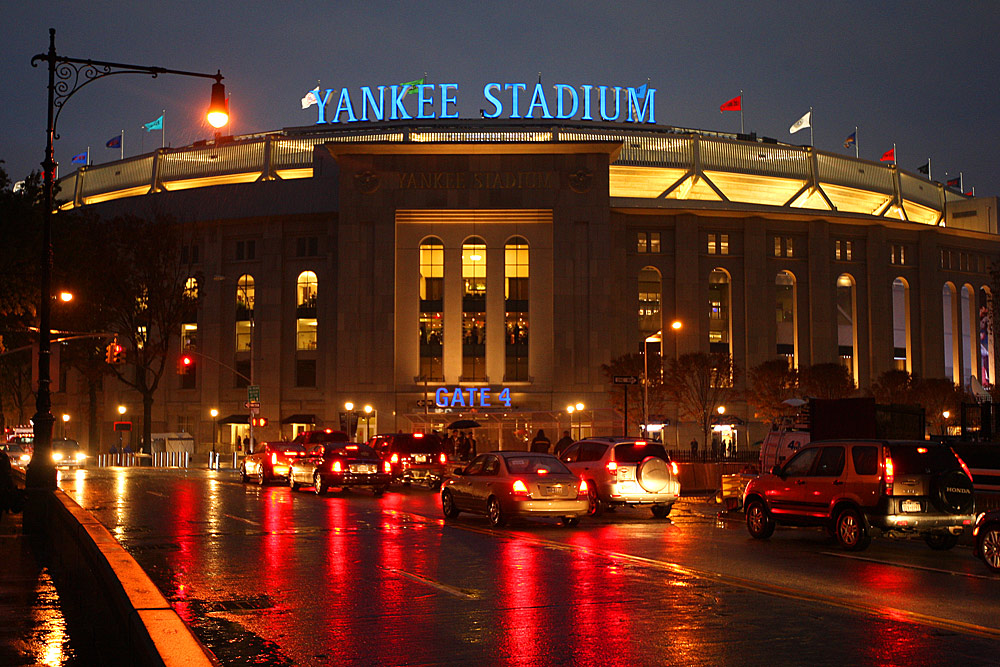







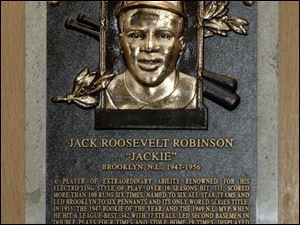
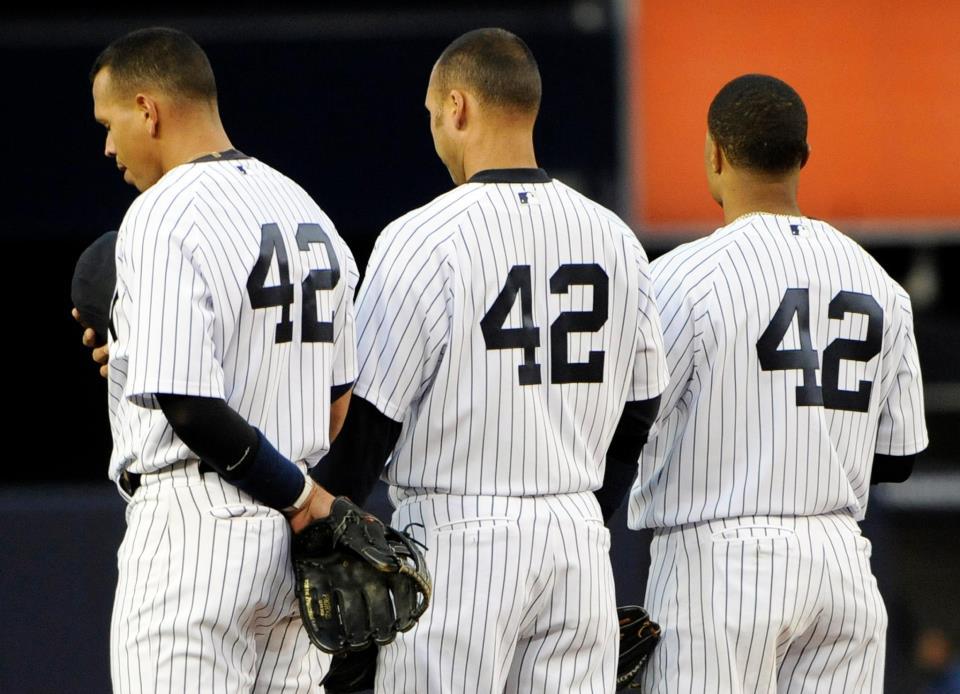


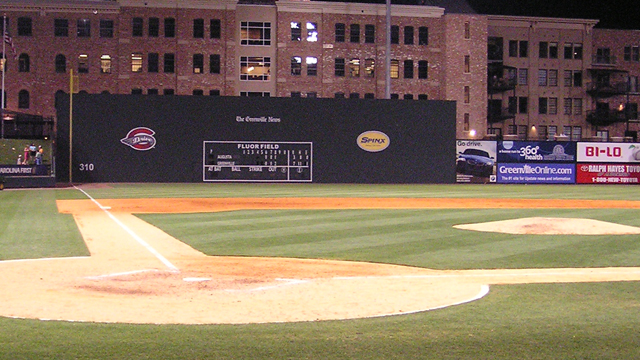
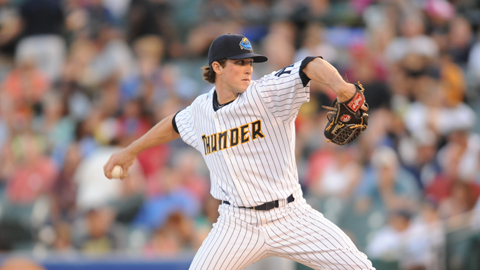
.jpg)

